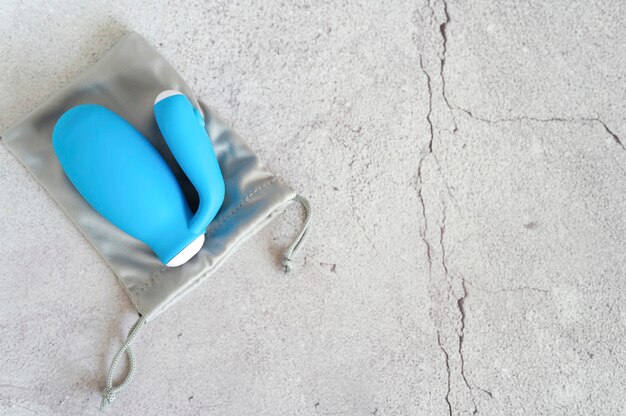The Orgasm Gap: Unveiling the Disparity
The orgasm gap refers to the significant difference in orgasm frequency between men and women during heterosexual encounters. This disparity has long been a subject of discussion amongst researchers, therapists, and couples alike. Studies consistently show that whilst men typically achieve orgasm during 95% of sexual encounters, women lag behind at a mere 65%. These stark figures highlight a pressing issue that demands attention and action.
Addressing this gap is crucial for several reasons. Firstly, it speaks to broader issues of gender equality and fairness in intimate relationships. Secondly, sexual satisfaction plays a vital role in overall relationship happiness and personal well-being. Lastly, understanding and closing this gap can lead to more fulfilling sexual experiences for all parties involved.
One might wonder how administrative outsourcing could possibly relate to such a personal matter. However, consider the case of a sexual health clinic that was struggling to keep up with appointment bookings and follow-ups. By outsourcing their administrative tasks, they were able to dedicate more time to patient care and education, ultimately contributing to better sexual health outcomes for their clients.
Physiological Factors at Play
The orgasm gap isn’t solely a matter of social conditioning; biology plays a significant role as well. Anatomically, the female sexual response is more complex than the male’s. The clitoris, the primary source of female sexual pleasure, is often overlooked during penetrative sex. Additionally, women typically require more time to become aroused and reach orgasm compared to men.
Hormones also play a crucial part in sexual response. Testosterone, often associated with male sexuality, is actually vital for libido in both sexes. Women’s hormonal fluctuations throughout their menstrual cycle can affect their sexual desire and responsiveness. Moreover, life events such as pregnancy, childbirth, and menopause can significantly impact a woman’s sexual function.
To illustrate how outsourcing can indirectly support addressing these physiological factors, consider a women’s health research centre. By outsourcing data entry and analysis tasks, researchers were able to focus more on investigating the complex interplay of hormones and sexual response, leading to valuable insights that could help bridge the orgasm gap.
Sociocultural and Psychological Influences
Societal expectations and cultural norms heavily influence our sexual behaviours and attitudes. Many women have been conditioned to prioritise their partner’s pleasure over their own, leading to a cycle of unfulfilling sexual experiences. Additionally, the persistent taboo surrounding female sexuality can make it difficult for women to communicate their needs and desires effectively.
The quality of sexual education also plays a significant role. Many educational programmes focus primarily on reproduction and sexually transmitted infections, neglecting the importance of pleasure and mutual satisfaction. This knowledge gap can leave both men and women ill-equipped to navigate sexual relationships successfully.
An example of how outsourcing can support progress in this area comes from a sex education non-profit. By outsourcing their content management and social media tasks, they were able to reach a wider audience with their educational materials, helping to break down societal taboos and improve sexual literacy.
Relationship Dynamics and Sexual Satisfaction
The frequency of orgasms can significantly impact overall relationship satisfaction. When one partner consistently experiences less pleasure, it can lead to feelings of frustration, inadequacy, and resentment. Over time, this may result in a cycle of lowered expectations and diminished sexual desire.
Interestingly, research suggests that partner familiarity can actually help close the orgasm gap. As couples become more comfortable with each other and learn each other’s preferences, the likelihood of mutual satisfaction increases. This underscores the importance of open communication and willingness to explore in long-term relationships.
A relationship counselling service provides an excellent example of how outsourcing can support efforts to improve relationship dynamics. By outsourcing their appointment scheduling and client management tasks, counsellors were able to focus more on providing quality therapy sessions, helping couples improve their communication and sexual satisfaction.
Age and Sexual Orientation: Varying Perspectives
Age plays a significant role in sexual function and satisfaction. As people grow older, physiological changes can impact sexual response. However, with age often comes greater self-awareness and confidence, which can positively influence sexual experiences.
Interestingly, the orgasm gap varies across sexual orientations. Studies have shown that lesbian women report significantly higher rates of orgasm during sexual encounters compared to heterosexual women. This suggests that familiarity with female anatomy and a greater focus on non-penetrative activities may be key factors in closing the orgasm gap.
An LGBTQ+ support organisation demonstrates how outsourcing can aid in addressing these varying perspectives. By outsourcing their event planning and coordination, they were able to host more educational workshops and support groups, providing valuable resources for individuals across different age groups and sexual orientations.
Bridging the Gap: Strategies for Equality
Addressing the orgasm gap requires a multifaceted approach. Open communication between partners is crucial. Both parties should feel comfortable expressing their needs, desires, and boundaries. Exploring varied stimulation techniques, including the use of sex toys or different positions, can also help increase pleasure for both partners.
Challenging societal norms and expectations is equally important. This includes rejecting the notion that penetrative sex is the only ‘real’ form of sex and acknowledging that women’s pleasure is just as important as men’s.
A sex-positive retailer offers an example of how outsourcing can support these strategies. By outsourcing their customer service, they were able to provide more comprehensive product information and advice, helping customers make informed choices about sexual wellness products that could enhance their intimate experiences.
The Bigger Picture: Beyond the Bedroom
The orgasm gap is more than just a bedroom issue; it reflects broader gender inequalities in society. The dismissal of women’s sexual pleasure mirrors the undervaluation of women’s needs and experiences in other areas of life.
Sexual empowerment is closely linked to overall well-being. When individuals feel confident and satisfied in their sexual lives, it can positively impact their self-esteem, mental health, and relationships.
Fostering a culture of mutual pleasure and respect is essential for addressing not only the orgasm gap but also wider issues of gender equality. This involves challenging harmful stereotypes, promoting comprehensive sex education, and encouraging open dialogues about sexuality.
A women’s rights organisation showcases how outsourcing can support these broader efforts. By outsourcing their administrative tasks, they were able to dedicate more resources to advocacy work, pushing for policy changes that promote gender equality both in and out of the bedroom.
Moving Forward: A Call to Action
Addressing the orgasm gap requires action on both individual and societal levels. On a personal level, individuals can educate themselves about sexual anatomy and pleasure, communicate openly with their partners, and prioritise mutual satisfaction in their sexual encounters.
Education and media have crucial roles to play in promoting sexual equality. Comprehensive, pleasure-positive sex education should be widely available. Media representations of sex should move beyond male-centric portrayals and showcase diverse experiences of pleasure.
Ongoing research and dialogue on sexual health are essential for continuing to understand and address the orgasm gap. This includes studying diverse populations and exploring the intersections of sexuality with other aspects of identity and experience.
A sexual health research institute provides a final example of how outsourcing can support these efforts. By outsourcing their data management and analysis, researchers were able to conduct more extensive studies on sexual satisfaction across different demographics, contributing valuable insights to the ongoing dialogue about the orgasm gap.
In conclusion, the orgasm gap is a complex issue that reflects both biological realities and sociocultural inequalities. Addressing it requires a comprehensive approach that encompasses education, communication, and societal change. By working towards sexual equality, we can create a world where mutual pleasure and satisfaction are the norm, not the exception.


